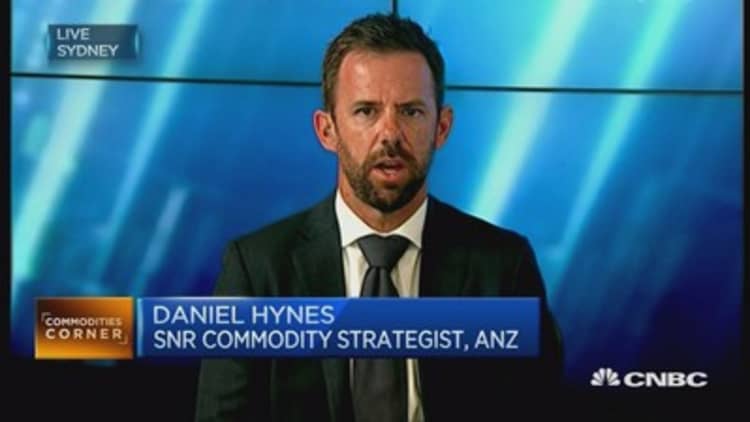


International sanctions against Iran were lifted over the weekend after the United Nations nuclear agency declared Tehran had fulfilled its commitment to scale back its nuclear program.
This means that the OPEC member will now be able to export oil, sending a wave of fear across the already weak markets which have been plagued by an energy supply surplus.
Oil prices tanked in early Asian trade Monday and are now about 70 percent lower from the summer of 2014 when prices began their extended decline
Experts weigh in on how Iran's re-entry into the global oil markets will impact the sector:
Commerzbank head of commodities research, Eugen Weinberg
"Instead of acting as an early indicator like it used to be in the past, the oil price drop is being driven down by deliberate OPEC oversupply, not weak demand (demand is red hot and never been as strong as it is now). So the current stance of the oil market should be a boon for the economies (of oil consuming countries) and the financial markets, not a bust."
UBS analysts Giovanni Staunovo and Dominic Schnider
"The likely increase of Iranian oil production could not have come at a more unfavorable point in time with the oil market oversupplied amid renewed economic concerns (particularly related to China) darkening the outlook for oil demand growth.
"With market participants likely opting for the worst outcome, which would swell the global oversupply even further, lower prices are required to shut-in production from non-OPEC countries, particularly the U.S. These adjustments are likely to (contribute to) even more company defaults related to oil, as well as less investment spending across the oil sector."
Energy Aspects, chief oil analyst, Amrita Sen
"I'd find it hard to believe it has a bigger effect than (a small knee-jerk reaction)
"We believe Iran will only be able to bring oil to the market gradually – they are only likely to increase production by around 250,000 to 400,000 million barrels a day relatively quickly, but will then face technical constraints that require western expertise and investment."
Manaar Energy head of consulting, Robin Mills
"I think Iran will return to the market as fast as they reasonably can - they need the revenues.
"Iran won't return to its pre-sanctions export levels, at least not until they have received substantial new investment, taking several years. But I do expect 600,000-800,000 barrels a day extra over the course of 2016. I don't expect substantial damage to the fields, as the shut-in was quite predictable and was not caused by war etc.
"I wouldn't expect a further sharp price fall, given how far prices have already fallen, and this news was quite well flagged."
FG Energy chairman Fereidun Fesharaki
"Iran has pre-sold the oil so we know more than half is not coming to Asia. We can identify, Greece, Spain and Italy for around 200,000 barrels a day, then Turkey and South Africa for around 150,000 barrels a day, Korea, India and Sri Lanka and some others for the rest.
"The market will (open lower) but by the end of the week, this impact may be gone. It is the bigger supply issue which is driving the market and Iran is just one part of the puzzle.
"Size matters, so market share is not only about money but about how important you are. Iran was the second largest OPEC exporter and important. With sanctions, it lost money and became irrelevant. It becomes relevant again and becomes now number three after the Iraqis."


